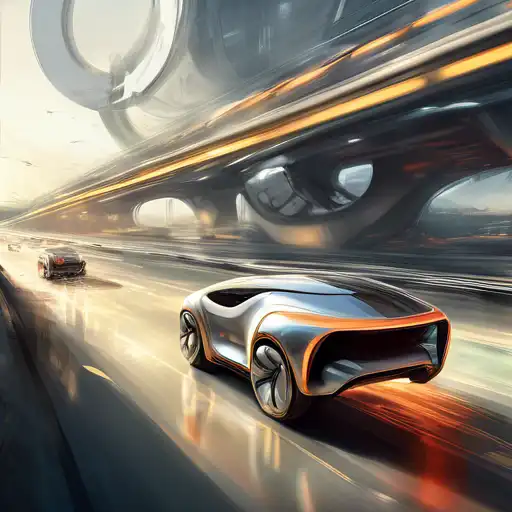Revolutionizing Roads: The Future of Automotive Technology
The automotive industry is at a pivotal moment in history, with technological advancements driving us towards a future that was once the realm of science fiction. From electric vehicles (EVs) to autonomous driving, the way we think about transportation is undergoing a radical transformation. This article explores the cutting-edge innovations shaping the future of automotive technology and how they promise to redefine our driving experience.
Electric Vehicles: Leading the Charge
Electric vehicles have moved from niche to mainstream, thanks to significant advancements in battery technology and a growing emphasis on sustainability. Companies like Tesla, Nissan, and Chevrolet are at the forefront, offering models that combine performance with environmental responsibility. The shift towards EVs is not just about reducing emissions; it's about reimagining the automotive ecosystem, from charging infrastructure to energy storage solutions.
Autonomous Driving: The Road Ahead
Self-driving cars are no longer a futuristic dream but a rapidly approaching reality. With companies like Waymo and Uber investing heavily in autonomous technology, the potential for safer, more efficient roads is immense. Autonomous vehicles (AVs) promise to reduce accidents caused by human error, optimize traffic flow, and provide mobility solutions for those unable to drive. However, challenges such as regulatory hurdles and public acceptance remain to be addressed.
Connectivity and IoT: Smarter Cars for a Smarter World
The Internet of Things (IoT) is making cars smarter than ever before. Modern vehicles are equipped with sensors and connectivity features that allow for real-time diagnostics, predictive maintenance, and enhanced navigation. This connectivity not only improves the driving experience but also opens up new possibilities for vehicle-to-vehicle (V2V) and vehicle-to-infrastructure (V2I) communication, paving the way for smarter cities.
Green Technology: Beyond Electric
While electric vehicles are a significant step towards reducing the automotive industry's carbon footprint, other green technologies are also making waves. Hydrogen fuel cells, for example, offer a promising alternative for heavy-duty vehicles and long-haul transportation. Additionally, advancements in materials science are leading to lighter, more fuel-efficient vehicles without compromising safety or performance.
Conclusion
The future of automotive technology is bright, with innovations that promise to make driving safer, cleaner, and more enjoyable. As we navigate the challenges and opportunities ahead, one thing is clear: the road to the future is being paved with groundbreaking technology. Whether it's through electric vehicles, autonomous driving, or smarter connectivity, the automotive industry is driving us towards a more sustainable and efficient future.
For more insights into the latest in automotive technology, check out our technology trends section.
